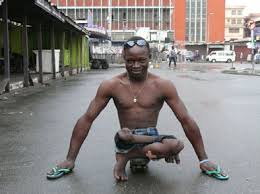
credit: bbc.com
With mpox being declared a public health emergency of international concern by the World Health Organization because of its rapid spread, all eyes have been on the Democratic Republic of Congo, which accounts for nearly all of this year’s recorded cases and more than 450 deaths.
In visits to treatment centres in the east of the country, the BBC has found children are worst affected by the illness, which can be deadly.
“It began like a small, inflamed spot. The mother squeezed it and watery discharge came out. Then another developed, and after a short period, they were all over the body,” says Alain Matabaro, describing how mpox developed in his six-year-old son Amani.
He started recovering after four days of treatment at a clinic in Munigi, close to the major eastern Congolese city of Goma.
Some 75% of the cases being seen by medics there are under the age of 10, according to Dr Pierre-Olivier Ngadjole who works for the charity Medair.
Young people seem to be particularly badly affected by the mpox outbreak because of their less developed immune systems.
Dr Ngadjole also blames overcrowding at a nearby camp set up for people forced from their homes by conflict in the region. One way mpox is spread is through very close contact and children “are always playing together. They don’t really care about social distance,” he tells the BBC.
“You can also see in the households, they even spend the night in the same bed. You can find three, four, five children. The transmission is present on a daily basis.”
Since June, the clinic in Munigi, which provides free treatment including antibiotics to treat skin infections, paracetamol and safe drinking water, has dealt with 310 mpox cases. It is now seeing between five and 10 new admissions each day.
No-one has died from the disease there and Dr Ngadjole believes it is because people are seeking help early.
“I think it’s very important to provide free health services especially in this context… [It] means people don’t face any financial barrier, they come early to the health facility.”
END





